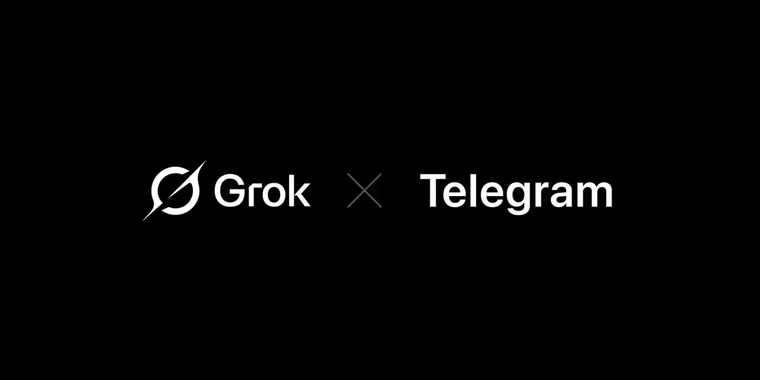Firefox is dead to me – and I'm not the only one who is fed up
-
This post did not contain any content.
-
This post did not contain any content.
Yeah it's bad. Most of the points made in that article are valid.
And once Firefox is gone, all the LibreWolfs and IronFoxs are gone too.
-
This post did not contain any content.
I can understand and relate to the complaints in this article but there's not really another alternative that I would prefer to use either
-
This post did not contain any content.
I've been using Zen which is nice and has some stuff removed that we don't want.
But it'll only be around as long as Firefox is around.
-
This post did not contain any content.
people who never donated or contributed getting made at mozilla cancelling services like pocket and fakespot is amusing.
-
I can understand and relate to the complaints in this article but there's not really another alternative that I would prefer to use either
Exactly. I'm not running to chrome with it's defanged ad blockers and Google stink.
-
This post did not contain any content.
I'm not happy with how Mozilla leadership has navigated the ship, but what is the alternative? If Mozilla dies, there isn't enough funding for one of the forks to take over the browser.
-
I've been using Zen which is nice and has some stuff removed that we don't want.
But it'll only be around as long as Firefox is around.
I’m in the same boat using Zen. Eagerly waiting on Ladybird to come out. They are writing it from the ground up not even a package being used according to them. Oh and this isn’t some rando this is a guy who done decades of coding(mostly browser) so my hopes are high as Snoop
-
I can understand and relate to the complaints in this article but there's not really another alternative that I would prefer to use either
LibreWolf? Its just firefox minus the crap?
-
I'm not happy with how Mozilla leadership has navigated the ship, but what is the alternative? If Mozilla dies, there isn't enough funding for one of the forks to take over the browser.
I for one would love to throw money at Mozilla, or any alternative, that has experienced developers behind it, doesn't have conflicts of interest and acts on behalf of its users. This is why I donate to Servo, Ladybird and Dillo too (I know one of these is not like the others
 ).
).I don't think they'd reach their current levels of funding through donations, but it might be possible to get enough together to keep it on life support.
I know this wouldn't be perfect, but surely better than losing it completely.
-
This post did not contain any content.
There are reasons I went to Seamonkey for a couple of years, then to Pale Moon (which is divergent enough now that I expect it to keep chugging along even if Firefox folds—most of Mozilla's patches are no longer relevant to its codebase). I'm interested to see what Ladybird will bring to the table, though.
-
LibreWolf? Its just firefox minus the crap?
But where does libre wolf go if Mozilla vanishes?
-
But where does libre wolf go if Mozilla vanishes?
Its open source no? I dont imagine the fork would just up and disappear either
-
This post did not contain any content.
Orion browser is also good. Coming to Linux soon.
-
This post did not contain any content.
Regardless of opinions, this
articleopinion piece is written like by an angry teenage nerd.I don't understand what these angry anti FF people want that keep on having weekly rants on the topic. You are free to not use the software if you don't like it or the company or whatever. Just move on and be happy.
I'm getting tired of these haters any time Mozilla does literally anything and there is not a single constructive idea ever but the demand that Mozilla must operate like a benefactor for nerds that do not have to pay for anything ever.
Damn, I almost wish Mozilla went commercial with FF to fund the development of it just because.
-
Its open source no? I dont imagine the fork would just up and disappear either
It won’t disappear, but the version number will be frozen. I kinda prefer to have security updates on a regular basis.
-
Its open source no? I dont imagine the fork would just up and disappear either
Probably not but it would probably fall behind chromium based projects without corporate sponsorship of its core rendering engine and javascript runtime.
-
I for one would love to throw money at Mozilla, or any alternative, that has experienced developers behind it, doesn't have conflicts of interest and acts on behalf of its users. This is why I donate to Servo, Ladybird and Dillo too (I know one of these is not like the others
 ).
).I don't think they'd reach their current levels of funding through donations, but it might be possible to get enough together to keep it on life support.
I know this wouldn't be perfect, but surely better than losing it completely.
ladybird
No planned windows support though 🫤
-
Orion browser is also good. Coming to Linux soon.
isn't onion b. just tor browser adapted to the limitations of ios?
-
I'm not happy with how Mozilla leadership has navigated the ship, but what is the alternative? If Mozilla dies, there isn't enough funding for one of the forks to take over the browser.
They had many years to develop alternative sources of income instead of relying solely on Google. But instead, they’ve been chasing every trend set by big corporations for no clear reason. I really dislike their CEO and the entire leadership team — they’re destroying Mozilla from the inside. Rather than implementing a recovery plan, which they could’ve done years ago, they allowed the company to remain dependent on Google.
From what I know, internal relationships among coworkers are poor. People either do whatever they want or nothing at all. If you try to bring new ideas to the CEO and you're not close to them, you're basically fucked up
With an organization being managed like this, there’s no path forward other than continued decline. Sadly, Mozilla is likely to die for all the reasons mentioned above








